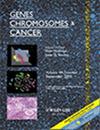Comprehensive Analysis of Juvenile Nasopharyngeal Angiofibromas via Whole-Exome Sequencing
Abstract
Introduction
The molecular basis and mechanisms of juvenile nasopharyngeal angiofibromas (JNA) pathogenesis are still unknown. Despite being a rare and benign neoplasm, JNA is a locally aggressive and potentially destructive head and neck neoplasm, typically found in young males. The advancement of genome technologies and analytical tools has provided an unparalleled opportunity to explore the intricacy of JNA. The present study provides the first evidence of the involvement of Y-chromosome genes in JNA.
Methods
A total of 13 JNA patients at an advanced disease stage and five age-matched male controls were registered for this study. Whole-exome sequencing (WES) analysis was conducted followed by functional analysis to understand the molecular mechanism of the JNA.
Results
WES analysis revealed a high prevalence of mutations in 14 genes within the protein-coding, male-specific region of the Y-chromosome of young males (mean age: 13.8 ± 2.4) with JNA. These mutations, occurring at 28 distinct positions, were characterized as moderate to high impact and were prevalent in nine JNA patients but not in the control group. The most frequently mutated genes were USP9Y and UTY, followed by KDM5D, DDX3Y, and TSPY4. The expression of USP9Y, UTY, and DDX3Y was found to be co-modulated, implying their coordinated regulation as a complex. Furthermore, somatic mutations were detected in genes previously linked to JNA.
Conclusion
The wide array of genetic mutations in the Y-chromosome male-specific region, along with the somatic alterations identified in JNA, provides novel insights into JNA pathophysiology.

 求助内容:
求助内容: 应助结果提醒方式:
应助结果提醒方式:


